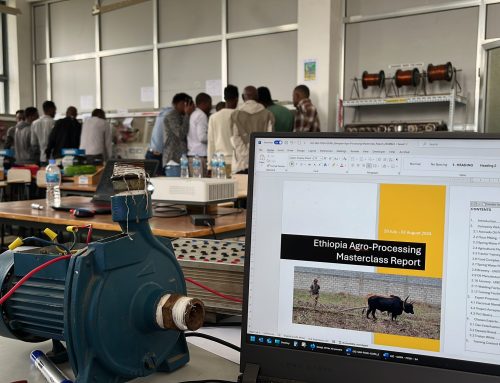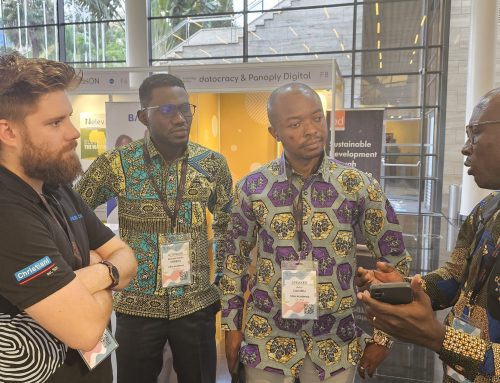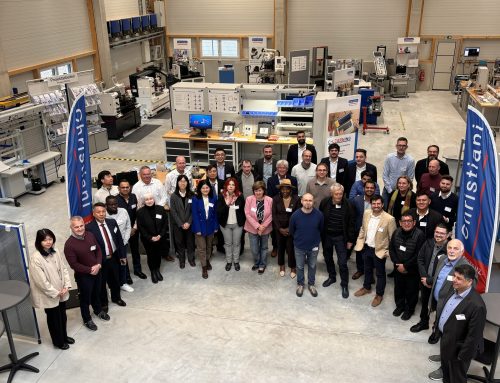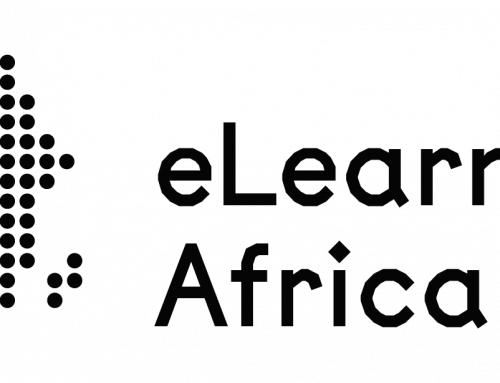Advancing TVET for Youth Employability through Stakeholder Engagement
The Department of Skills Development in the Ministry of Education and Skills Development of Botswana hosted the first Technical and Vocational Education and Training (TVET) Symposium in collaboration with BIBB, iMove, and VDMA. The primary purpose of the three-day event was to bring together TVET managers, regulators, employers, civil-society, and donor communities for a dialogue on producing employable TVET graduates with relevant labour market skills. The theme for both the symposium and the open day and graduation was “Advancing TVET for youth employability through stakeholder engagement.” This event was also Broadcasted live by the Ministry of Education and Skills Development Botswana.
Day 01: 15 February 2023 at Wagga Gardenex
The event was opened by the Permanent Secretary in the Ministry of Education and Skills Development Botswana, Ms Marriam Maroba, and head of iMove at BIBB, Dr Andreas Werner. Other key speakers included Mr Peter Pfaffe, Regional Manager Sub-Saharan Africa, Ms Birgit Thomann, Head of Department VET International at BIBB, and Hon. Dr Douglas Letsholathebe, Minister of Education and Skills Development Botswana.
The first topic of discussion was “Strengthening the Role of the Private Sector in TVET.” The honourable Minister Dr. Douglas Letsholathebe, HE Ms. Margit Hellwig-Botte, Ambassador of the Federal Republic of Germany, Dr. Norbert Volka, Head of Educational and Project Director of VDMA-Germany, and Mr. Norman Moleele, Business Botswana, discussed the current participation of the private sector in TVET. The panellists also discussed how to improve private sector participation in TVET and what legal instruments are in place to support the private sector in TVET.
The second topic was about “Improving Quality and Relevance of TVET Programmes.” The panellists were Dr. Olefile Molwane, Deputy Dean Faculty of Engineering & Technology University of Botswana, Lily Rakorong, CEO of HATAB, Mr Sybran Tsie, Executive Director of Construction Industry Trust Fund, and Mabatho Tsepe, Didactic Solutions Engineer (Festo Didactic). The panellists discussed the significance of quality assurance in TVET, how to ensure training is relevant and satisfies the needs of the industry, and the importance of improving quality and relevance.
The third topic was “Promoting Research and Creativity and Innovation in TVET.” Tristan White (Christiani Africa) was a panelist, along with Prof. S. Masupe, CEO of BITRI, Mr. Tshepo Tsheko, CEO of Botswana Innovation Hub, and Luise Maudanz, Deputy Head of Sustainability, and Internationalization of VET at the Central Agency for Continuing Vocational Education and Training in the Skilled Crafts. The panellists discussed the need for TVET institutions to carry out continuous research to keep TVET relevant to market needs and align curriculums with the newest market trends.
Tristan White discussed the importance of continuous research in TVET institutions. He mentioned that research is necessary to keep TVET relevant to market needs and to align curriculums with the newest market trends, which increases the employability of students. Tristan also discussed the importance of contextualizing technology to the African market, as importing tools and trying to implement them directly in the industry without capacity building and contextualization often fails to make an impact, and the tools will not be utilized. He noted that Christiani Africa is developing technology that facilitates the ability to quickly update the curriculum using digital tools like VR environments, which can be updated much faster than traditional curriculum updates. Tristan went on to explain how Christiani Africa works with lecture capacity building programs where they supply their technologies and train lecturers to learn the relevant skills to use this tech. He also spoke about how important it is to contextualize these technologies to the African market. Tristan also discussed the challenges in implementing research practice in TVET. He spoke about the lack of infrastructure at TVET and how doing project-based learning and teaching programs at the colleges where there is a focus on infrastructure and sustainable tech could directly benefit these colleges. He also mentioned how TVET in South Africa cannot afford to constantly update their equipment as well as curriculum to suit market needs, which is one of the reasons digital tech could be beneficial as students can work with equipment virtually, and it can quickly be updated.
The final topic was about “Promoting E-Learning in TVET.” The panellists were Kehiloe Serero, Director of Vertigo Enterprises, and Tidimalo Collince Pence, Manager of Blended and Distance Learning Campus at Botho University. They discussed the importance of e-learning and blended learning in TVET.
Day 02: 16 February 2023 at Wagga Gardenex
On the second day of the event, which was February 16th, it was cancelled due to flooding. Despite this, we took advantage of the opportunity to network with other attendees, for example the Dean of Engineering of New Era College, a stakeholder at the Botswana International University of Technology, and more. We were able to set up future meetings and learned about potential opportunities to exhibit our work and collaborate with these institutions.
Day 03: 17 February 2023 at BAISAGO University College
On the third day of the event, which was held on February 17th at BAISAGO University, the Class of 2022 Graduation Ceremony for Brigades and Technical Colleges took place. Christiani Africa had a stall set up where they showcased their gamified and VR content to students, stakeholders, and TVET lecturers, to promote the benefits of these tools. In addition, Christiani Africa promoted their other services, including the design of training labs, textbooks, training courses, exam preparation, e-learning software, and practical teaching systems that are available for schools, universities, private sector, and TVET.





